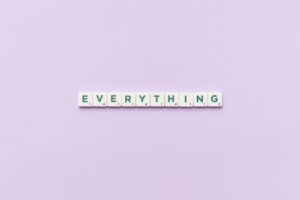Read time 6 minutes
There are moments in life when everything changes. It is when our body speaks louder than our thoughts, and our health becomes our most urgent priority.
For me, that moment came when I was diagnosed with a rare neuromuscular condition called Isaacs’ Syndrome. What followed was a cascade of other diagnoses:
- Lyme disease: A tick-borne bacterial infection affecting joints, heart, and nervous system.
- Glaucoma: A degenerative eye disease that damaged my optic nerve.
- Membranous Glomerulonephritis: A progressive kidney disorder.
- Diabetes & Blood Pressure issues: Chronic conditions that made recovery complex.
- Irritable Bowel Syndrome (IBS): Gut-related problems that altered my nutrition and comfort
Each one brought its own set of challenges, symptoms, and fears. But through it all, one practice became my anchor: medical recordkeeping.
This blog is not just about illness. It’s about survival, clarity, and the quiet power of staying organized. It’s about how keeping detailed medical records helped me navigate the storm and find my way back to health.
A Grateful Beginning

Before I dive into the details, I want to pause and say thank you, to the Universe, to the people who stood by me, and to the quiet resilience that kept me going.
Recovery is not linear, and healing is never guaranteed. But every step forward is a blessing. And today, I’m grateful to be able to share my story.
The Risk of Disorganization

When I was first diagnosed, I didn’t realize how important it was to keep my health documents in order. I had stacks of papers, test results, prescriptions, and discharge summaries scattered across drawers and folders. It felt overwhelming. I was living with multiple chronic conditions, and yet I wasn’t managing my information in a way that supported my care.
A senior neurologist once told me, “Medical recordkeeping is an art.” That stuck with me. He explained that a well-maintained medical record can change the entire course of treatment. It’s not just paperwork, it’s a roadmap to recovery.
My Rare Disease Journey

Isaacs’ Syndrome was the first diagnosis that shook me. It’s a rare neuromuscular disorder caused by continuous muscle fiber activity. My body felt like it was constantly buzzing, twitching, and aching. Then came Lyme disease. It is a bacterial infection transmitted through tick bites. It added fatigue, joint pain, and neurological symptoms to the mix.
As if that weren’t enough, I was also diagnosed with Glaucoma, a condition that damages the optic nerve and threatens vision. And finally, Membranous Glomerulonephritis. It is a progressive kidney disease that affects the filtering units of the kidneys.
Each diagnosis felt like a blow. I was drowning in symptoms, medications, and uncertainty. There were days when I sat on my bed, surrounded by pill bottles, wondering if I’d ever feel normal again.
Why Medical Recordkeeping Became My Lifeline

In the midst of all this, I realized I needed clarity. I needed a system. I needed to take control of my health information.
Medical recordkeeping became my lifeline.
It gave me a clear picture of my medical history, helped my doctors make informed decisions, and ensured continuity of care. It wasn’t just helpful, it was essential.
Here’s what I learned:
- A personal medical record includes diagnostic test results. It has information on medications, clinical observations, and current health status
- It ensures that the right information reaches the right person at the right time
- It supports accurate diagnosis, effective treatment, and better communication between healthcare providers
The Challenges of Getting Started

In the beginning, organizing my medical records felt like climbing a mountain. I carried a huge bag filled with reports, prescriptions, and handwritten notes. It was chaotic. I often scribbled down symptoms or questions, only to find later that my notes were illegible or incomplete.
I missed important details. I forgot dates. I couldn’t remember which doctor said what. And worst of all, I felt like I was losing control over my own health narrative.
That’s when I had a breakthrough.
The Spreadsheet That Changed Everything

One afternoon, I was looking at a spreadsheet from my old investment banking job. It was clean, organized, and easy to navigate. That’s when it hit me, why not apply the same logic to my medical records?
I created a digital spreadsheet and began entering data. It took weeks, but it was worth every minute. I started from my initial diagnoses and included:
- Date of appointment
- Doctor’s name and specialization
- Clinic or hospital details
- Test results and procedures
- Symptoms and concerns discussed
- Medications prescribed (past and present)
- Side effects experienced
- Doctor’s comments and recommendations
- Follow-up actions
- Notes section for questions, alternative treatments, and allergies
- Billing and insurance details
This system changed everything. Suddenly, I had a clear, chronological view of my health journey. I could track patterns, identify triggers, and prepare for appointments with confidence.
The Benefits of Organized Medical Records

The impact of this effort was profound. Here’s how medical recordkeeping transformed my life:
- Improved doctor-patient communication: I could share accurate information quickly. It helped doctors make better decisions.
- Reduced medical errors: No more forgotten allergies or missed prescriptions.
- Streamlined follow-ups: I knew exactly what to ask, what to bring, and what to expect.
- Emergency readiness: In urgent situations, I had everything at my fingertips.
- Cost savings: I avoided duplicate tests and unnecessary procedures.
- Motivation: Seeing my progress over time gave me hope and strength.
Even my parents were inspired. They started maintaining their own medical records and saw similar benefits. It became a family practice, one rooted in care, awareness, and empowerment.
A Tool for Healing

Medical recordkeeping didn’t just help me manage my conditions, it helped me heal. It gave me a sense of control in a world that felt unpredictable. It allowed me to advocate for myself. I asked better questions, and explored alternative treatments with confidence.
I began integrating holistic approaches. Some were, Ayurvedic remedies, homeopathy, and nutritional supplements like zinc and turmeric. I tracked their effects, noted interactions, and adjusted my plan accordingly.
This wasn’t just about data. It was about dignity.
Protecting Health Information

One of the most overlooked aspects of medical recordkeeping is security. I made sure to back up my digital files, use password protection, and keep printed copies in a safe place. Losing this information would mean losing part of my story, and I wasn’t willing to take that risk.
Going Digital: Tools That Help

Today, there are many apps and platforms that make medical recordkeeping easier. From cloud-based storage to health tracking apps, technology can simplify the process. I still use my spreadsheet, but I’ve also started exploring digital tools that sync with my doctor’s systems.
The key is consistency. Whatever tool you choose, stick with it. Update it regularly. Treat it like your health diary.
A Message to Fellow Patients

If you’re living with a chronic illness or managing multiple diagnoses, I urge you, start keeping your medical records today. Don’t wait for a crisis. Don’t assume someone else will do it for you.
You are your best advocate. You know your body better than anyone else. And having a clear, organized record of your health can make all the difference.
Final Thoughts: From Chaos to Clarity

Medical recordkeeping is not just a task, it’s a tool for survival. It’s the difference between confusion and clarity, between reactive care and proactive healing.
For me, it was the turning point. It helped me reclaim my health, rebuild my confidence, and reconnect with life. It gave me the structure I needed to navigate a complex medical journey with grace and resilience.
So if you’re reading this, consider it your sign. Start today. Create your system. Own your story.
Because when disaster strikes, the time to prepare has already passed.
And when it comes to your health, preparation is everything.
DISCLAIMER
The views expressed in this article are the author’s own and do not represent any kind of medical advice.


